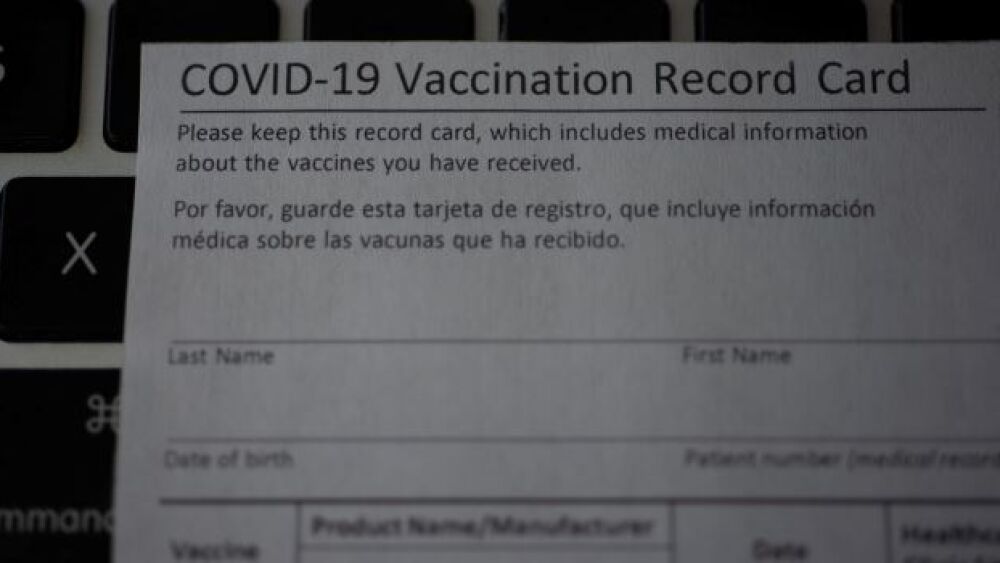Fueled by the highly contagious delta variant, life science companies have issued policies on COVID-19 vaccines, including verbiage around exemptions or solutions for medical objections.
As the work force begins to return to the office, life science companies are having to take their stance on vaccine policy. Some have chosen a strict mandate, others a mandate with options and others have yet to issue an edict.
With just over half the U.S. population fully vaccinated against COVID-19, the pandemic continues to emit an air of politics over science as our country remains as polarized as ever.
Vaccine mandates are now at the center of the heated debates as state governments and cities issue decrees. According to a CNBC survey, the nation is sharply divided. Some see it as a necessary step to have a chance at any semblance of a return to normal. Others decry it as an injustice to our liberties and downright un-American.
One thing seems clear however, life science employees are more in favor than not. From those who disagree with the mandates, the main objection appears to be the lack of full FDA approval for the vaccines. However, that may not be an issue for much longer with full FDA approval just around the bend.
Likely fueled by the highly contagious delta variant, the following life science companies have issued policies on COVID-19 vaccines. Most companies include verbiage around exemptions or alternative solutions for this with medical and religious objections.
Eli Lilly
For Indianapolis-based Eli Lilly, all U.S. and Puerto Rico staffers will need to be vaccinated against COVID-19, effective November 15.
Johnson & Johnson
All US-based J&J employees and contractors have until October 4 to be fully vaccinated.
Gilead
With a target date of October 1, all 13,500 Gilead staffers will have to be fully vaccinated.
Genentech
The 13,000 employees at Genentech will need full inoculation prior to returning to the workplace. Around 80% of its workforce already fit the bill.
Waters Corporation
Lab instrument company Waters had originally enacted a “relaxed” protocol for employees at its Milford site in mid-June. The 87% of vaccinated employees did not have to wear masks, but social distancing was still required. With the Delta variant on the rise, Waters announced a new policy, requiring U.S. employees and contractors to be fully vaccinated against COVID-19. The policy will go into effect in mid-October and applies to visitors of any facility in the U.S.
Nephron Pharmaceuticals
Since February, South Carolina Nephron has been offering its employees vaccines, but now it’s no longer optional. All its staffers must be fully vaccinated or at least have started a two-dose vaccine series by August 27.
Pfizer
Pfizer is taking the middle-of-the-road approach by requiring all U.S. employees and contractors to make a choice – vaccinate against COVID-19 or participate in regular weekly testing. The company will work with employees with medical or religious objections to the vaccine with alternative solutions.
Novartis
Swiss company Novartis follows Pfizer’s example with requirements of full vaccination or a negative COVID-19 test within the last two weeks before each visit to its campus.
AbbVie
Chicago-based AbbVie uses more of a carrot or stick approach with two options for employees: get vaccinated, enjoy mask-free work without social distancing, or keep up the mask and 6-foot distance and be subjected to weekly on-site COVID-19 testing.
GlaxoSmithKline
While avoiding a full-on mandate for employees, GSK strongly encourages the shot and requires proof of vaccination to enter a “number of U.S. sites” according to an email.
The broader debate seemingly comes down to this: are employers allowed to mandate staff vaccination? While vaccines have commonly been required for students attending school and healthcare workers, those have all been requirements of fully FDA-approved vaccines.
It appears as though the law will likely side with the mandates as 150 Houston Methodist Hospital employees resigned or were fired after their lawsuit against the hospital over its vaccine mandate proved unsuccessful.
Many life science companies are still waiting and watching before making a firm policy decision. Vaccination rates are naturally higher in the biopharma world due to scientific backgrounds and trust in the life science industry. Many companies are asking employees if they’re vaccinated, some taking their work and others requiring proof. More mandates are likely to surface once the shots have full FDA approval.
While Roche’s Genentech issued a mandate, Roche itself states its policy is “highly dependent on the respective local situation and regulations.”
“It’s a balance because employers are starting to encourage employees to come back to work and try to restore some of the camaraderie that existed pre-pandemic, but they also have to be careful about maintaining health and safety in the workplace,” said Gregory Abrams, a partner at Faegre Drinker Biddle & Reath in a statement.
“As with everything COVID-related, employers are dealing with uncharted territory.”






